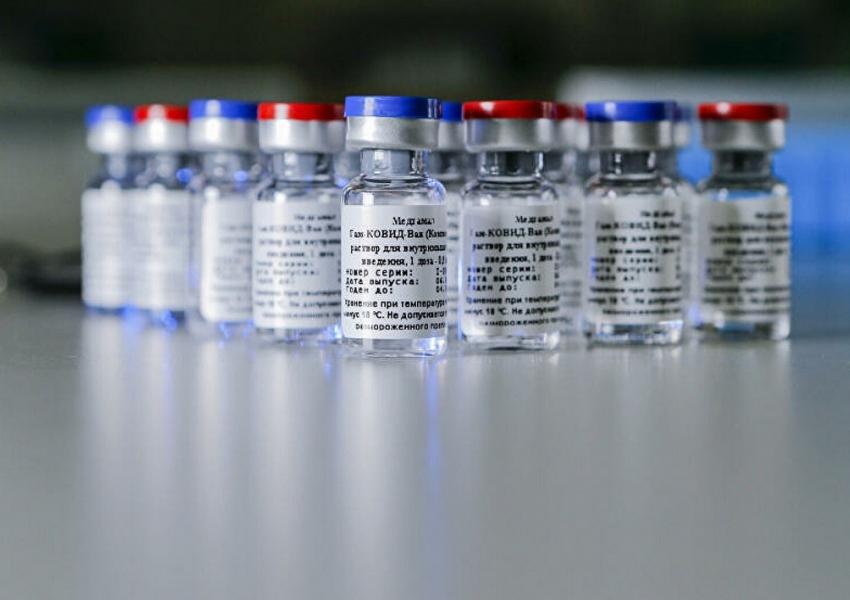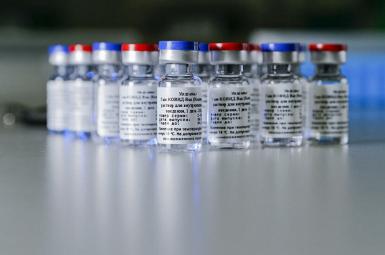
Health Official Says Iran Cannot Rely On Russian COVID Vaccine
Alireza Raisi, a deputy health minister and spokesman of Iran's National Coronavirus Combat Taskforce said on Saturday that production of the Russian Sputnik-V vaccine in Iran could not be counted on to meet the country’s needs.
"The production line is here in Iran but it definitely doesn't belong to Iran and based on the agreements made, they can distribute the products in other places," Raisi said. But he added that production would begin in September.
Spokesman of Iran's Food and Drug Administration, Kianoush Jahanpur, said July 19 Iran had “invested our hope in the joint production of this vaccinee in Iran. He said Russia had sent only 2 million of 62 million scheduled doses of Sputnik-V. Raisi made similar remarks the same day in a Clubhouse session in which the Iranian ambassador to Moscow, Kazem Jalali, who was behind January’s agreement for production in Iran, responded that Russia had promised to quickly remedy the delay.
Iran's Health Minister Saeed Namaki is a former CEO of Actoverco, a pharmaceutical company who made the agreement for importing Russian Sputnik-V and the production line. Namaki began promoting the vaccine in February and kicked off Iran's vaccination program on February 9 by having the first dose of Sputnik-V administered to his own son, in a televised ceremony attended by President Hassan Rouhani.
Sputnik-V was the first vaccine approved for use in Iran. Many Iranians, including Dr Minoo Mohraz, one of Iran's top infectious diseases experts who has been involved in efforts to produce a local vaccine, said they did not trust the Russian vaccine and would refuse to be inoculated with it.
Iran approved Sputnik-V on January 25, soon after Supreme Leader Ali Khamenei banned United States and United States vaccines. Khamenei received the second dose of a vaccine said to be the homegrown CovIran Barakat, which has not yet been made available in significant numbers.
Sputnik-V has now been approved for emergency use in countries including Russia, Argentina, Brazil, Belarus, the United Arab Emirates, Serbia, Hungary but has yet not received the approval to the World Health Organization (WHO), which so far has recognized only Pfizer and AstraZeneca. Russia has established joint production in many countries.
Iranian officials have also made similar complaints about co-production of Soberana-02, a Cuban vaccine to be presented under the name PastoCoVac in Iran. Agreement on joint production between Iran's Pasteur Institute and Cuba’s Finlay Institute was reached in Havana in December. Pasteur Institute officials have repeatedly promised the vaccine would be available soon but Mohraz on July 7 said that the Cuban side had withdrawn – a claim rejected by the head of Pasteur Institute, Alireza Biglari, who said the vaccine would be available from September.
Iran's Deputy Health Minister Iraj Harirchi Wednesday apologized for a failure to keep promises over Covid-19 vaccinations. The program has moved slowly, with 10 million doses (first and second jabs) administered up until Saturday.









